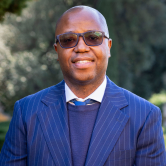The impacts of economic sanctions on food (prices) security: Evidence from targeted countries
23 April 2024 2:00 pm CEST
Discover with Angela Cheptea & Sylvanus Kwaku Afesorgbor the causal impact of economic sanctions on both food prices and food security.
Venue
This is an online event. Please register using the link below.
Description
Our paper examines the causal impact of economic sanctions on both food prices and food security. Food prices serve as a pivotal gauge of food security, and the enforcement of economic sanctions may compound food security issues in the countries targeted by such measures. The examination of the impact of sanctions on food prices is of paramount importance, especially considering anecdotal evidence suggesting heightened food security concerns in nations subjected to sanctions. To ascertain the existence of a causal link between food prices and sanctions, we employ a two-way fixed-effects approach and leverage the entropy balancing technique, which replicates randomization in observational studies. Our analysis relies on two primary datasets: the recently developed Global Sanctions Database (GSDB) for measuring sanctions and FAOSTAT for evaluating food prices. Our results show that sanctions result in a real term increase in food prices as during the sanctions period, food prices are higher by 0.01-0.014 compared to non-sanctions period. Sanctions contribute to a higher prevalence of undernourishment (PoU) by 1.419-2.083.
The project leading to this webinar has received funding from the European Union’s Horizon 2020 research and innovation programme under the Marie Sklodowska-Curie grant agreement No. 101031139.
Registration HERE
Speaker(s)
Sylvanus Kwaku Afesorgbor is an Associate Professor of Agri-Food Trade and Policy at the Department of Food, Agricultural, and Resource Economics, University of Guelph, Canada, and a Research Associate at the Environment for Development (EfD) Initiative. With experience spanning various countries, he offers a global perspective in both, his research and teaching. His academic journey began with a bachelor’s degree in Economics and Statistics from the University of Ghana. Subsequently, he pursued a master’s degree in Development Economics at the Erasmus University Rotterdam in the Netherlands, followed by a PhD in Economics and Business from Aarhus University Denmark. During his academic career, he helds the position of a Postdoctoral Researcher at the Tuborg Research Centre for Globalization and Firms of Aarhus University, Denmark. He has been honored with the prestigious Jean Monnet Fellowship (2023/4) and Max Weber Postdoctoral Fellowship (2015/6), both granted by the Robert Schuman Centre for Advanced Studies, European University Institute, Florence, Italy He also contributes to the academic community as an Associate Editor for the journal; Climate and Development, and also a member of the editorial boards of the Canadian Journal of Agricultural Economics and the African Journal of Economic and Management Studies. His research has been published in reputable journals. These include Energy Policy, World Development, European Journal of Political Economy, Environmental and Resource Economics, Journal of African Economies, African Development Review, Canadian Journal of Agricultural Economics, etc.
Angela Cheptea holds a Master in International and Development Economics and a PhD in Economics from the University of Paris 1. Since 2006, She is a researcher at the Economics Department of the French Research Institute for Agriculture, Food and Environment (INRAE). In 2012-2015, She was a postdoctoral Marie-Curie research fellow at the Institute for Applied Economic Research at the University of Tübingen (IAW) in Germany. Her main research interests are international trade and trade policy. Her works focuses on the evolution of trade costs, the role of multinational retailers in shaping trade patterns, global value chains and firm strategies, the impact of trade policies (EU integration, russian food embargo, and Brexit), and, more recently, on the link between trade and the use of pesticides and water resources in the agricultural sector. Since 2017. She has co-supervised two PhD theses and two post-doctoral projects.
Scientific Organiser(s):
Fabio Santeramo (European University Institute)
Mahdi Ghodsi (The Vienna Institute for International Economic Studies)



